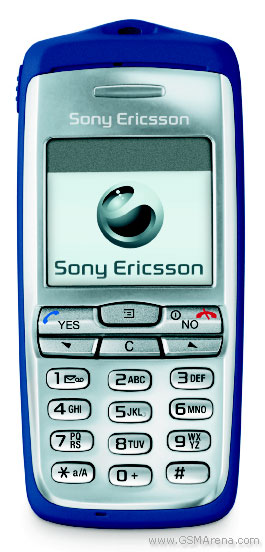Discover the Sony Ericsson T600 Specs Pricing Pros & Cons

Design and Build
Released in October 2002, the Sony Ericsson T600 immediately stood out for its compact design, measuring just 92 x 41 x 20 mm and weighing a mere 60 grams. The device was quite small compared to other mobile phones of its time, and its lightweight build made it highly portable and easy to carry, perfect for users who preferred a minimalist approach to mobile telephony.
The T600 was available in three distinctive colors: Moonlight Silver, Marine Blue, and Gold. Its aesthetic appeal combined with practical design elements such as the Mini-SIM slot made it an attractive phone for a diverse range of users.
Display
The display featured grayscale graphics with four shades, providing a basic yet functional experience for users. The resolution stood at 101 x 80 pixels, which was typical for phones in the early 2000s, as they were primarily designed for calls and basic messaging rather than multimedia consumption. Despite its limitations, the display served well for the T600's intended use cases, focusing on clear and concise communication.
Network and Connectivity
Supporting GSM 900, 1800, and 1900 bands, the Sony Ericsson T600 could function across much of the globe, making it a popular choice for travelers. However, it did not support GPRS or EDGE technologies, which limited its use to more basic functions such as calls and SMS messaging. The absence of WLAN, Bluetooth, and radio features limited wireless connectivity options, which was typical for devices of its era.
Memory and Storage
With no card slot available, the T600 offered limited internal memory capabilities. Nonetheless, it could store up to 250 phonebook entries, complete with contact groups, which was quite sufficient for users at the time. Additionally, the phone could record 30 each of received, dialed, and missed calls, providing convenient access to recent communications.
Sound and Alerts
The device was equipped with monophonic ringtones and a composer, allowing users to personalize alerts within the technical constraints of the time. However, it did not feature a loudspeaker or a 3.5mm audio jack, which made listening to audio a private, rather than shared, experience.
Features and Applications
As a feature phone, the T600 primarily targeted users looking for straightforward and reliable communication tools. Key features included SMS and EMS messaging capabilities, a WAP 1.2.1 browser for basic web browsing, and essential utilities such as a clock and alarm.
The T600 also included a selection of five simple games: Triango, CarRace, UnderAttack, MindPuzzle, and BrickSmash, providing basic entertainment options for users. However, the absence of Java meant that the potential for expanding these entertainment offerings was limited.
Battery Life
The Sony Ericsson T600 was powered by a removable Li-Po battery, which was a common specification for mobile phones at the time. Users could expect up to 180 hours of standby time and up to 5 hours of talk time, which was more than adequate given the phone's core functions and the energy demands of its hardware.
Conclusion
The Sony Ericsson T600 is a testament to the early 2000s era of mobile phones, focusing on essential functions packed within an attractive and lightweight design. Despite its technological limitations by today's standards, such as lack of a camera, absence of modern connectivity features, and basic display, it served its purpose well as a simple communication device.
While the T600 has long been discontinued, its legacy lives on as a representation of the transition from basic mobile phones to the more advanced smartphones we use today, capturing the essence of minimalist design with its limited features tailored to essential telecommunication needs.
Key Features of Sony Ericsson T600
- Compact and Lightweight Design: Dimensions of 92 x 41 x 20 mm and weight of 60 g make it extremely portable.
- GSM Tri-Band Support: Operates on GSM 900 / 1800 / 1900 bands for global connectivity.
- Phonebook Capacity: Stores up to 250 entries with contact groups capability.
- Call Records: Keeps track of 30 received, dialed, and missed calls.
- Monophonic Ringtones: Offers vibration and monophonic ringtone alerts with a composer feature.
- WAP Browser: Includes WAP 1.2.1 browser for basic mobile internet browsing.
- Built-in Games: Comes with 5 entertaining games - Triango, CarRace, UnderAttack, MindPuzzle, BrickSmash.
- Battery Life: Provides up to 180 hours of standby time and up to 5 hours of talk time with a removable Li-Po battery.
- Color Variants: Available in 3 stylish colors - Moonlight Silver, Marine Blue, and Gold.
Disadvantages of Sony Ericsson T600
- No GPRS or EDGE support for data connectivity.
- Discontinued model, no longer supported or available.
- Very limited grayscale display with only 4 shades.
- No memory card slot for expandable storage.
- Limited phonebook capacity, only 250 entries.
- No camera available.
- No loudspeaker or 3.5mm headphone jack.
- No Bluetooth or WLAN for wireless connectivity.
- No GPS or radio features available.
- Basic WAP 1.2.1 browser, limiting internet browsing capabilities.
- No Java support for additional application installations.

View Also
More Phones
All Rights Reserved +13924 Phones © Mobilawy 2025
























